8 Dividend Consumer Stocks to Buy for Income & Growth

Profit and prosper with the best of Kiplinger's advice on investing, taxes, retirement, personal finance and much more. Delivered daily. Enter your email in the box and click Sign Me Up.
You are now subscribed
Your newsletter sign-up was successful
Want to add more newsletters?

Delivered daily
Kiplinger Today
Profit and prosper with the best of Kiplinger's advice on investing, taxes, retirement, personal finance and much more delivered daily. Smart money moves start here.

Sent five days a week
Kiplinger A Step Ahead
Get practical help to make better financial decisions in your everyday life, from spending to savings on top deals.

Delivered daily
Kiplinger Closing Bell
Get today's biggest financial and investing headlines delivered to your inbox every day the U.S. stock market is open.

Sent twice a week
Kiplinger Adviser Intel
Financial pros across the country share best practices and fresh tactics to preserve and grow your wealth.

Delivered weekly
Kiplinger Tax Tips
Trim your federal and state tax bills with practical tax-planning and tax-cutting strategies.

Sent twice a week
Kiplinger Retirement Tips
Your twice-a-week guide to planning and enjoying a financially secure and richly rewarding retirement

Sent bimonthly.
Kiplinger Adviser Angle
Insights for advisers, wealth managers and other financial professionals.

Sent twice a week
Kiplinger Investing Weekly
Your twice-a-week roundup of promising stocks, funds, companies and industries you should consider, ones you should avoid, and why.

Sent weekly for six weeks
Kiplinger Invest for Retirement
Your step-by-step six-part series on how to invest for retirement, from devising a successful strategy to exactly which investments to choose.
Consumer stocks have been a mixed bag for investors in this bear market.
On the one hand, consumer staples, which provide life's necessities, have held up far better than the broader market as Americans stock up for what could be weeks spent indoors. But consumer discretionary stocks – companies selling clothes, burgers and cars – have been every bit as bad as the S&P 500, if not worse.
But there are several consumer stocks to buy on both sides of the aisle now: staples that should continue to perform well as long as the outbreak keeps a grip on the country, as well as discretionary plays that have been knocked down into value status and have higher yields – and higher upside potential when the economy rebounds – as a result.
Here are eight large-cap consumer stocks to buy for income and growth. These companies boast varied mixes of dividend and upside potential. Some of them are bounce-back plays, while others are steady Eddies that investors can hold to protect against additional market declines. However, all of them have seen their dividend yields become at least a little richer over the past few weeks.
Data is as of March 24. Dividend yields are calculated by annualizing the most recent payout and dividing by the share price.
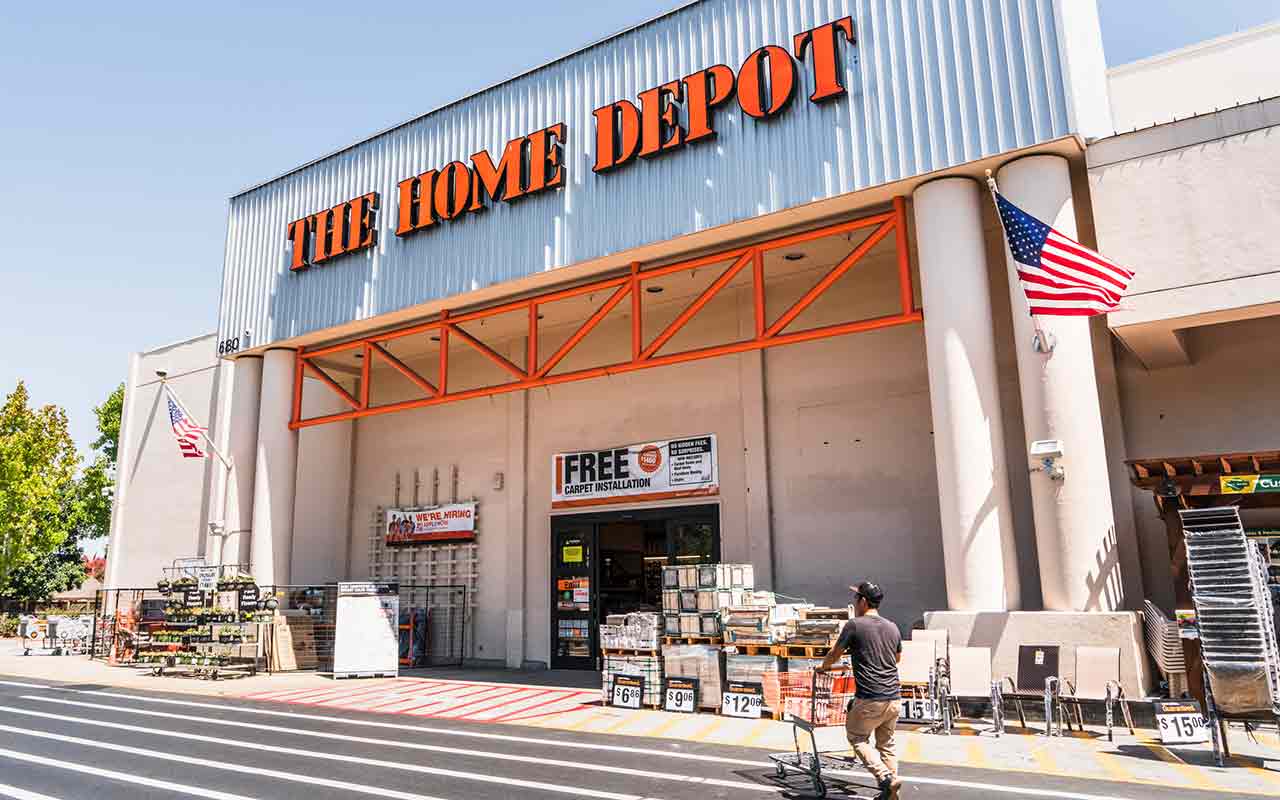
Home Depot
- Market value: $201.5 billion
- Dividend yield: 3.2%
- Home Depot (HD, $184.72) is down almost 24% since the bear market began, but it is outperforming the broader market by about 4 percentage points.
While homebuying (and the related DIY shopping that comes with it) is likely to take a hit in the short-term, some analysts believe that HD stock still could benefit from the stockpiling phenomenon that has overtaken some consumers who are worried about being without in a prolonged downturn.
"As the coronavirus crisis continues to unfold, the company is increasingly becoming a source of now more highly desired consumables," Oppenheimer analyst Bran Nagel writes. Indeed, the store actually announced a reduction in store hours to restock shelves and clean.
There are other reasons to like Home Depot longer-term, however. HD is in the middle of a three-year, $11 million program to integrate its brick-and-mortar stores with its growing online business. That will be important as the company works to compete with Amazon.com (AMZN) and other online retailers for customers' growing desire to shop from home.
"We're excited about our e-commerce business as part of a whole interconnected retail strategy," CEO Craig Menear told analysts when the company reported earnings in February. "We believe that the front door of our store is now in the customer's post, it's on the job site, that most of our customers' shopping experience actually starts in the digital world even if it finishes in the physical world."
As for the dividend, Home Depot in February raised the payout by a little more than 10% to $1.50 per share – its 11th consecutive dividend hike. And the recent decline puts HD among consumer stocks to buy if you're looking for yields of 3% or more.
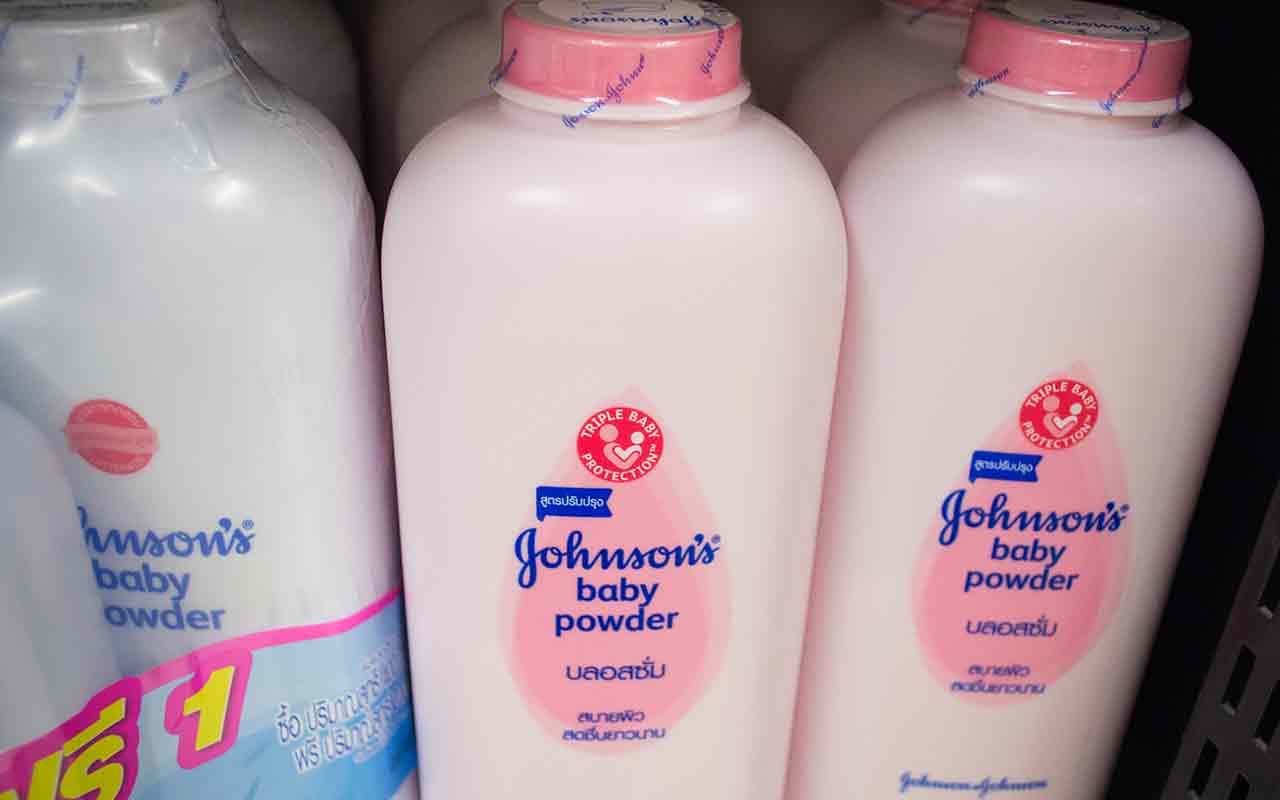
Johnson & Johnson
- Market value: $314.2 billion
- Dividend yield: 3.2%
- Johnson & Johnson (JNJ, $119.18) is something of a hybrid play. It's officially a health-care stock. But it easily deserves a spot alongside consumer stocks to buy, too, given its brand lineup that includes Johnson's baby-care products, Tylenol painkillers, Listerine mouthwash, Neutrogena skin-care products, Band-Aid bandages and many more.
Needless to say, its mix of those wares, as well as pharmaceutical and medical devices that still have plenty of use no matter what the economy is doing, have helped JNJ stand tall with a mere 19% decline to widely outperform the market.
The New Brunswick, New Jersey-based company also is among health and pharmaceutical companies working on coronavirus products.
Johnson & Johnson hopes to begin human clinical trials on a vaccine in November. "We are making significant progress, and very, very fast," Dr. Paul Stoffel, the company's chief science officer, recently told CNBC. The company began work on the vaccine in January, using the same platform it used for its drugs to treat Ebola.
But even if its coronavirus vaccine falls flat, it has plenty of other approved products that haul in the profits, including its oncology drugs Zytiga, Darzalex and Imbruvica. J&J also says it has more than a dozen products currently in its late-stage pipeline, meaning there are plenty of future profit prospects. Meanwhile, JNJ is a Dividend King that boasts 57 consecutive years of dividend increases, and there's little to signal that streak should end anytime soon.
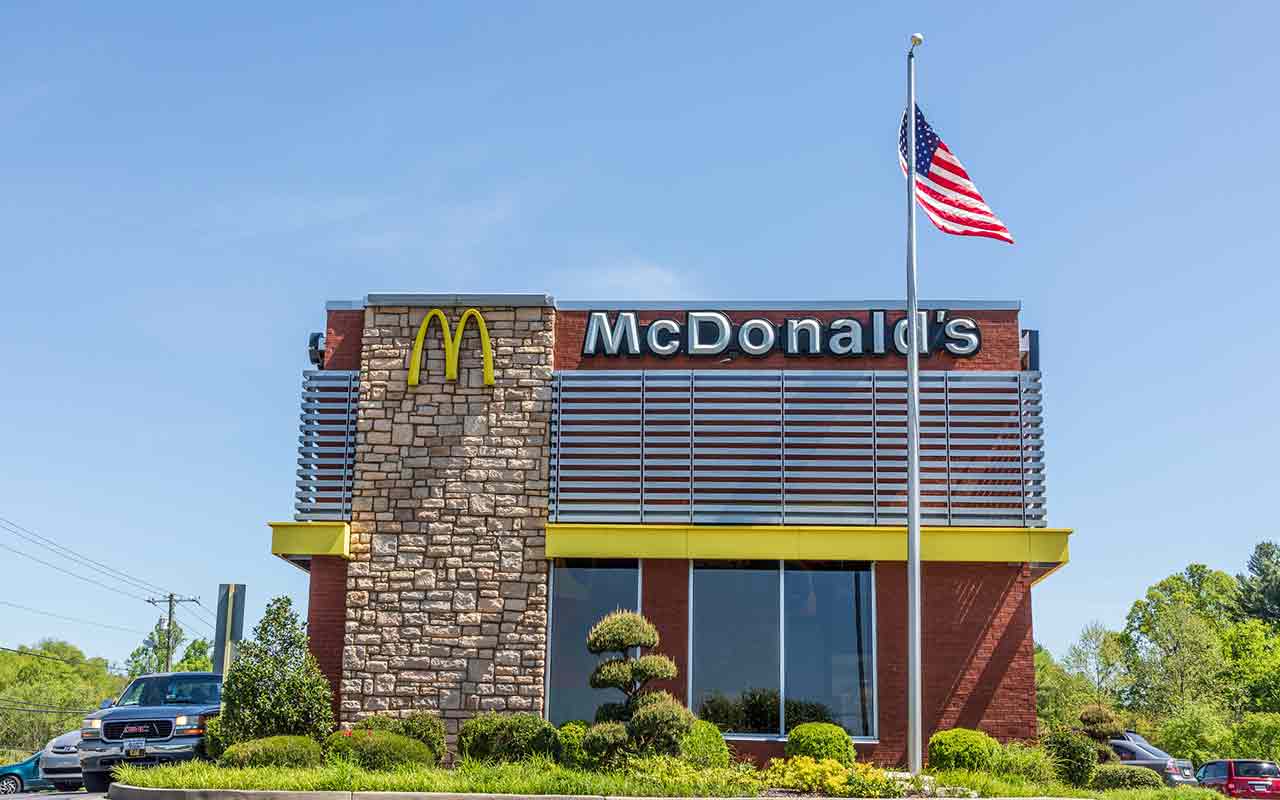
McDonald's
- Market value: $120.7 billion
- Dividend yield: 3.1%
If you want a case study on what a decent breakfast offering can do for your fast-food restaurant, look no further than McDonald's (MCD, $161.95). The home of Ronald McDonald and the Big Mac was suffering through lagging sales and a stale menu when it had a breakthrough in 2017 – offer its breakfast menu all day long.
Genius. McDonald's stock shot up 40% in 2017 and hit all-time highs as people celebrated with Egg McMuffins all day long. CEO Steve Easterbrook was a rock star and McDonald's was flying high.
Of course, all good things come to an end. Easterbrook was fired in November 2019 after an internal investigation revealed he was having a relationship with a McDonald's employee, which violated company policy. And competition is keen. For instance, Wendy's has recently pushed into McDonald's lucrative breakfast business, and Burger King has made a splash with its Impossible Burger that McDonald's, which does have its own vegan burger, hasn't really matched.
So what about looking forward?
McDonald's right now is helped by the fact that consumers are rapidly adapting to restaurant delivery while they're shut in, not to mention its low-cost offerings. And like Home Depot, it's outperforming the broader index by a few percentage points, which is the envy of most other restaurant stocks.
The real potential, however, comes once the coronavirus danger has passed. MCD did beat expectations when it reported fiscal Q4 earnings a month ago, posting revenue of $5.35 billion and earnings per share of $1.97 as price increases helped offset a decrease in foot traffic. A string of strong results like that bodes well for McDonald's ability to perform once consumers start to find jobs again and are able to move more freely about their communities.
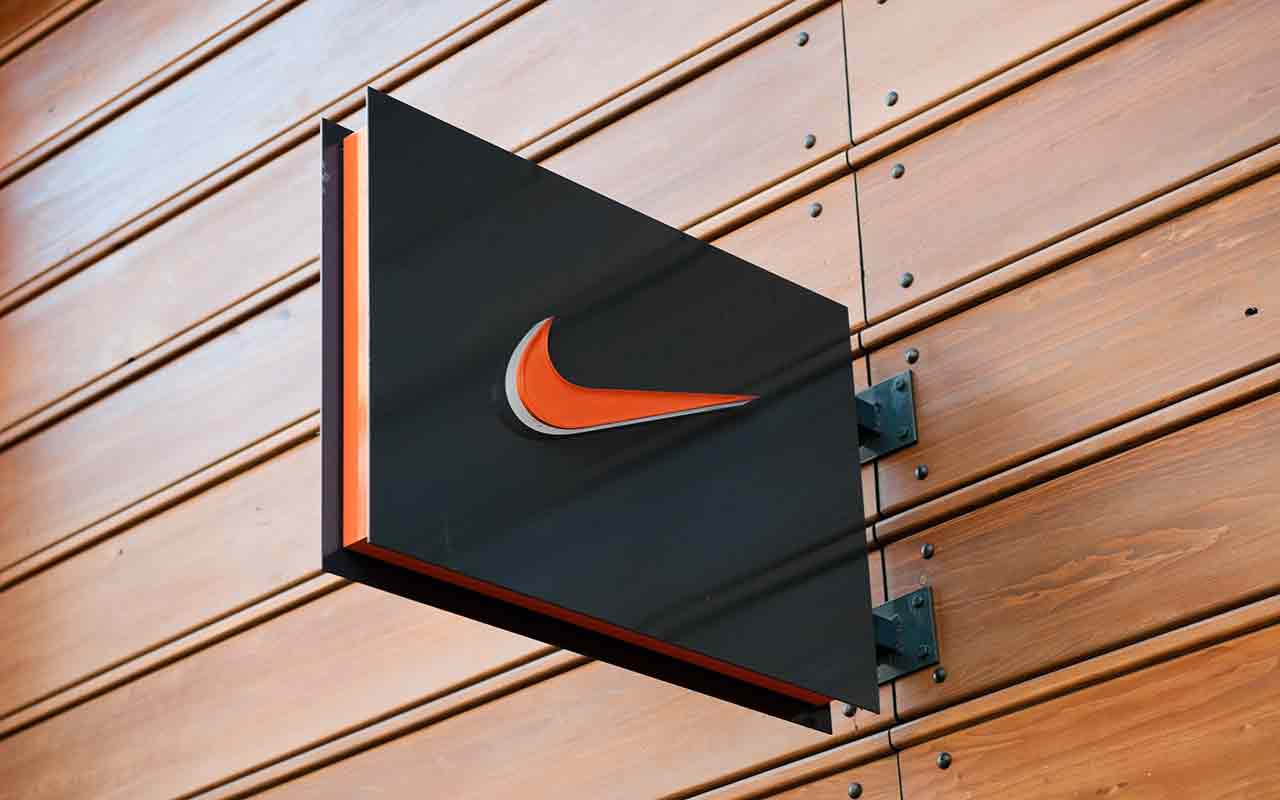
Nike
- Market value: $112.6 billion
- Dividend yield: 1.4%
Social isolation has become a daily reality for most. Many people aren't even supposed to leave home unless it's for work – or to exercise. In the U.S., an estimated 60 million people are runners, joggers or do trail running. And if social isolation becomes a long-term thing, we could be seeing boom in the jogging culture that exploded in the U.S. back in the 1970s.
That's where Nike (NKE, $72.33) comes in. Nike has long been a dominant player in both professional sportswear and leisure athletic shoes.
NKE stock was at record highs of $104 in mid-January, but the stock took a beating in the first quarter as the coronavirus wrecked production lines and its stores in China. As the virus spread, so too did Nike's issues. The company shut down stores in the U.S., Canada, western Europe, Australia and Canada. The cancelation of sporting events around the world, such as the Euro 2020 soccer championship, also weighed on NKE stock.
But there's plenty of room for optimism. Bank of America analyst Robert Ohmes upgraded NKE to Buy, noting that the company is among well-positioned among consumer stocks to resume growth once this health crisis ends.
"We believe NKE remains the key brand that whole sale customers shift orders to in times of distress and should also benefit from its superior sourcing capabilities," Ohmes wrote in a note to clients.
Better still: The stock is bouncing back somewhat amid a Street-beating quarterly earnings report that showed the company indeed did suffer declines thanks to the coronavirus pandemic, but CEO Phil Donahoe says the company is starting to see a "recovery" in China.
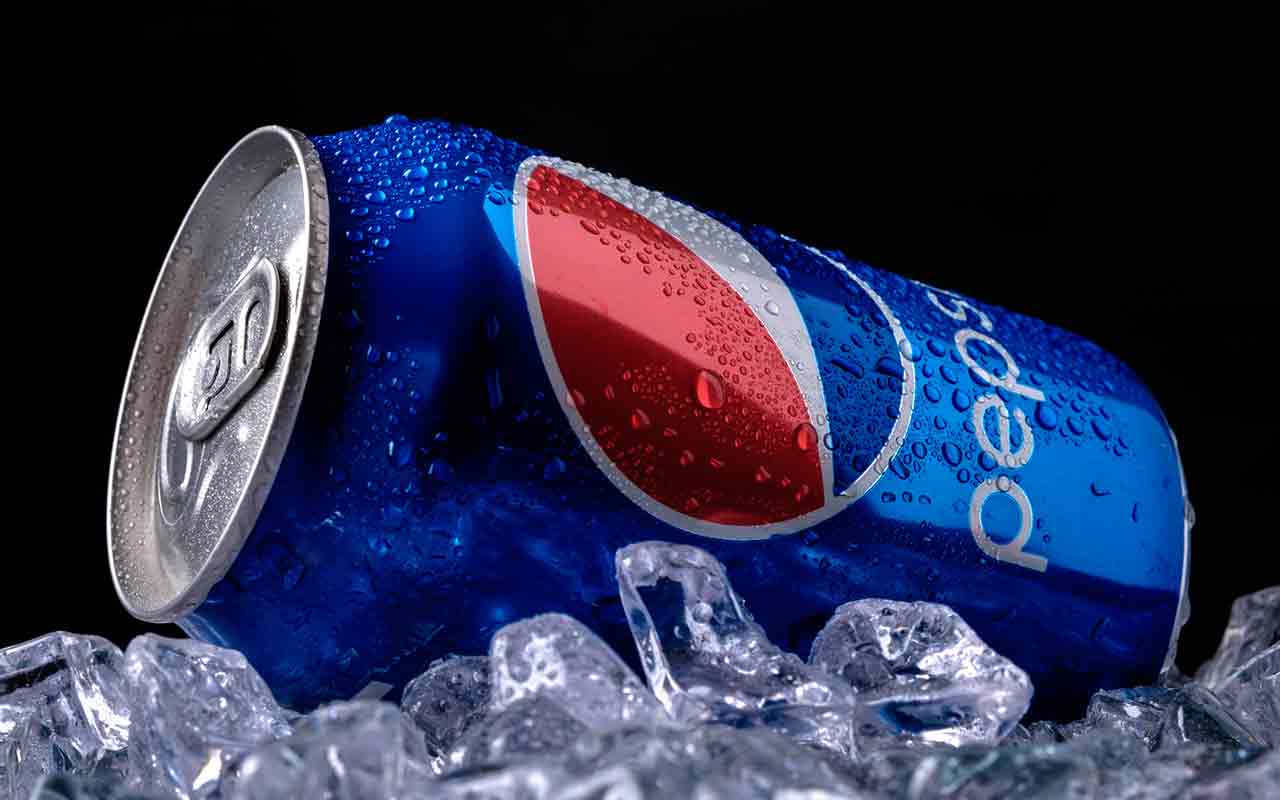
PepsiCo
- Market value: $158.2 billion
- Dividend yield: 3.3%
A few decades ago, PepsiCo (PEP, $113.84) branded itself as "the taste of a new generation." These days, Pepsi is working hard to diversify its brands to offer different tastes for the latest generation of finicky consumers, who are turning away from soft drinks.
Soda sales have fallen over the past decade while sales of seltzer and flavored waters have soared. It's clear that Pepsi will have to rely less and less on revenue from its namesake brand if it hopes to succeed in the 2020s.
Sure, Pepsi still aggressively markets its sodas, even launching a recent campaign to promote its Wild Cherry Zero Sugar and Vanilla Zero Sugar drinks. But it's also looking for new avenues, such as its recent $3.85 billion acquisition of Rockstar Energy Beverages. Pepsi's deal comes amid a 2020 that has seen rival Coca-Cola (KO) release energy drinks labeled with its namesake brand.
In addition to its drinks, Pepsi also owns a stable of snack food brands, including Lay's, Doritos, Cheetos and Ruffles – all which help diversify Pepsi's revenue stream. In 2019, Pepsi says it earned 54% of its revenue from snack foods.
CFRA analyst Garrett Nelson has PEP among his top consumer stocks to buy, recently upgrading it from Buy to Strong Buy. He did reduce his price target from $160 to $145 per share, however, to reflect the surprising spill Pepsi's stock took along with the rest of the market, but he believes its dividend will remain intact. Moreover, PEP shares are only off 21% to the broader market's 28%.
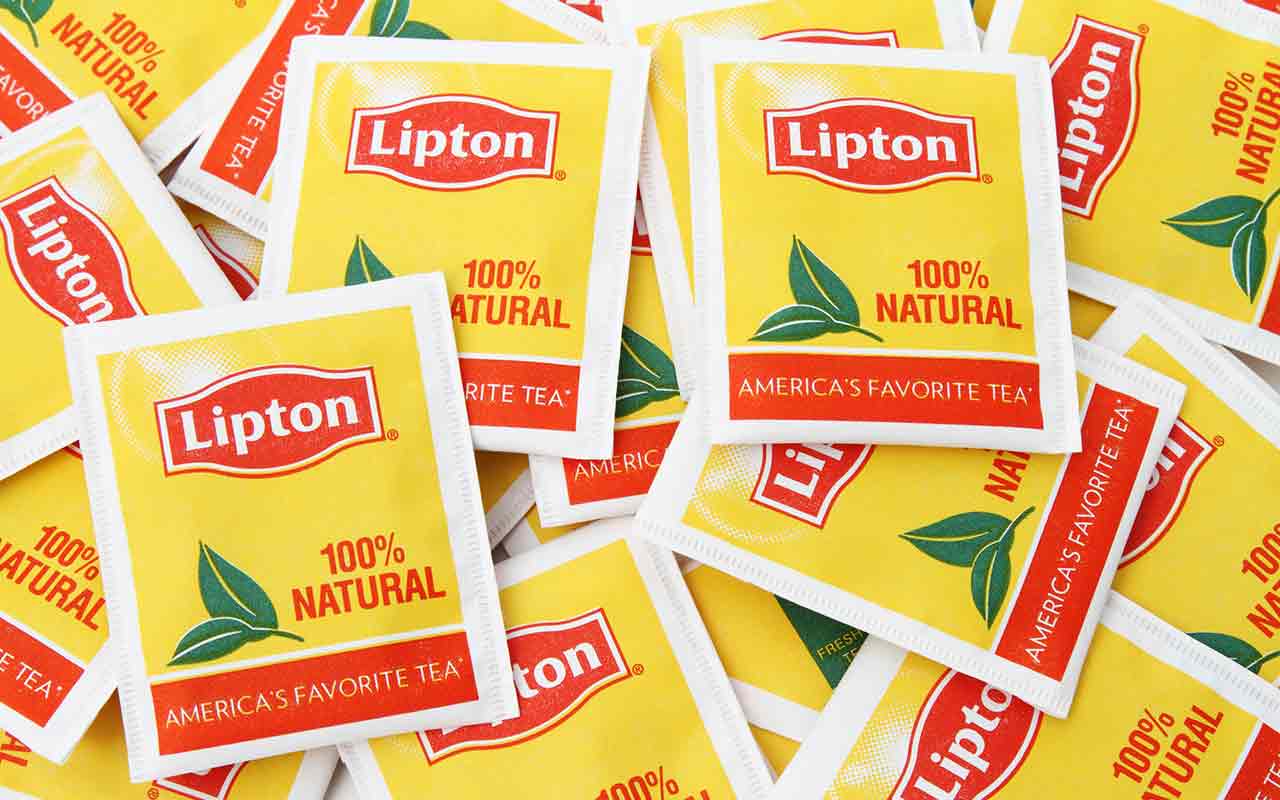
Unilever Group
- Market value: $124.3 billion
- Dividend yield: 3.8%
You might not know Unilever (UL, $47.50) by name, but you more than likely know its brands. Unilever is a London-based consumer goods company that makes a variety of everyday products, such as Axe body spray, Hellmann's condiments, Dove soap, Lipton tea and Magnum ice cream.
In periods of high unemployment, like the one it seems increasingly likely we're headed for, consumer stocks like Unilever that sell everyday staples can help keep a portfolio afloat, especially if they offer better-than-average yields.
JPMorgan analysts recently upgraded UL stock from Underweight to Neutral, writing that companies that make mass-market home and personal care products are considered "defensive consumption" stocks. Companies more likely to be hurt are non-essential goods such as alcoholic beverages and beauty products, the analysts said.
Unilever's shares have acted similarly to Johnson & Johnson's, down only about 20% to outperform the broader market. UL should have room to rise from here, and it should continue to act defensively should the stock market resume its declines.
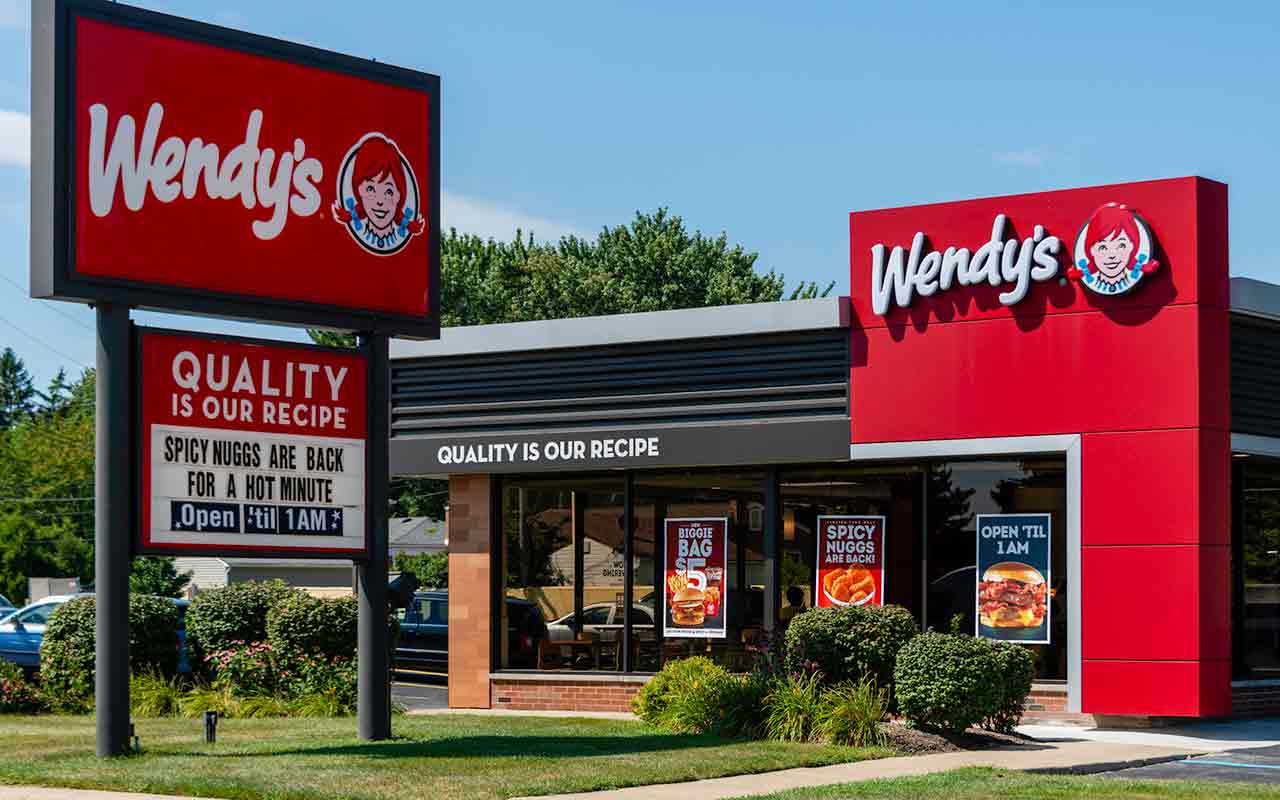
Wendy's
- Market value: $3.1 billion
- Dividend yield: 1.0%*
- Wendy's (WEN, $14.06), the world's third-largest hamburger chain, introduced the Frosty-ccino – its take on the frappe iced coffee drink – as part of the company's new breakfast menu that rolled out nationwide in March. It says its cold coffee drink, made with a Frosty dessert, has just half the calories as a Starbucks (SBUX) Frappuccino.
Of course, Wendy's had no idea when it planned its breakfast launch that the market would be cratered by the coronavirus, or that its restaurants would be closed to dine-in business. While the breakfast menu is still available, Wendy’s ditched its $70 million advertising campaign so it could use the money to help franchisees with their rental payments.
Worse, Wendy's recently announced it was victim to a fresh-beef shortage, forcing it to pull burgers from many of its locations. While it can still offer chicken products and side dishes, it's a humiliating reckoning for the company known for its iconic "Where’s the Beef" campaign in the 1980s.
But perhaps the biggest news of late was Wendy's surprise decision May 6 to slash its dividend from 12 cents per share to a measly nickel – a 58% cut – after announcing Q1 results that included flat same-store sales and a plunge in profits.
All is not lost. With the dividend cut and other cost-cutting, Wendy's has about $365 million in cash on hand, according to CEO Todd Penegor. And despite the lousy news, Wendy’s stock jumped after the earnings report, with analysts increasingly optimistic that the company will turn things around as stay-at-home orders begin lifting around the country.
The breakfast menu, despite the lack of an advertising push, contributed to a surprising 8% of Wendy's sales. That sends a signal that perhaps the chain's higher-quality items, such as a breakfast Baconator sandwich or a honey butter chicken biscuit, will help it stand out in the breakfast wars. "While the environment we encountered when we started breakfast was not what anyone would have expected, the strength of our program makes this day a key bright spot," Penegor says.
WEN stock yields about 1% now, factoring in the dividend cut, which is a considerable downgrade. But Wendy's has equipped itself to get through the pandemic intact; given the company's robust income growth before the pandemic, a return to larger dividends might be in store after business normalizes.
*EDITOR'S NOTE: This frame has been updated to account for Wendy's decision to cut its dividend, which yielded 3.4% at the original time of publishing.
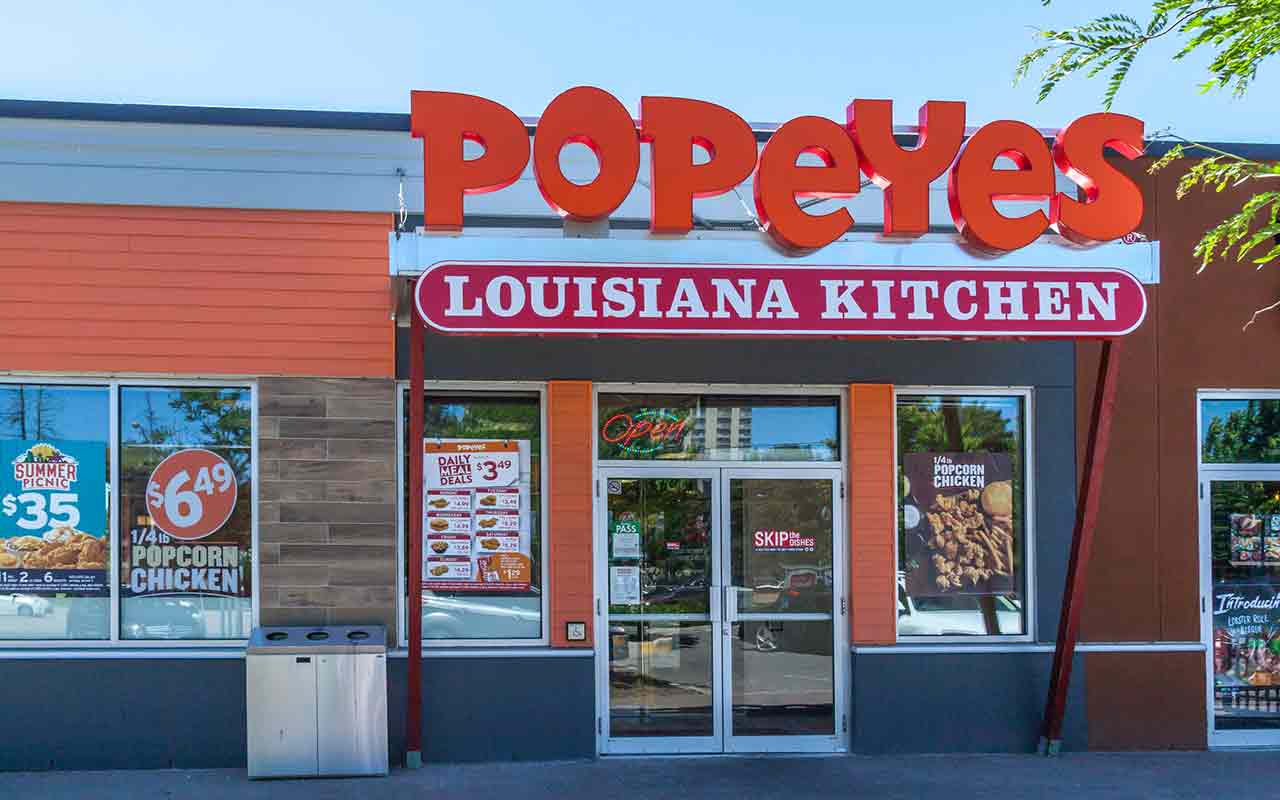
Restaurant Brands International
- Market value: $11.5 billion
- Dividend yield: 5.4%
No fast-food chain did more to disrupt the industry in 2019 than Restaurant Brands International (QSR, $38.63). The aforementioned Burger King Impossible Whopper capitalizes on the growing trend of plant-based foods by offering a meatless patty that includes beet juice that makes it "bleed" like a traditional burger, and is purported to mimic the taste much better than bean-based burgers.
And then there's chicken. QSR's Popeyes Louisiana Kitchen nearly broke the internet last year when it rolled out its spicy chicken sandwich, which was so popular that many restaurants had shortages for weeks. It also sparked a war between Wendy's, Popeyes and privately held Chick-fil-A over who had the superior sandwich – that's the type of buzz that makes investors swoon.
The company's fourth-quarter results beat on both the top and bottom lines, and CEO Jose Cil says the company will spend 2020 refocusing on "the incredible power of our brand" at Tim Hortons, the Canadian-based coffee chain, to improve results for that brand.
Just show a little care with this consumer stock. QSR has just $1.5 billion in cash versus nearly $12 billion in long-term debt. A prolonged economic downturn could threaten the company's dividend, which, while lucrative at more than 5%, has only grown uninterrupted for a few years now. That means management might be quicker than Dividend Aristocrats such as McDonald's and J&J to cut its payout should QSR need to conserve cash.
Profit and prosper with the best of Kiplinger's advice on investing, taxes, retirement, personal finance and much more. Delivered daily. Enter your email in the box and click Sign Me Up.
-
 Dow Adds 1,206 Points to Top 50,000: Stock Market Today
Dow Adds 1,206 Points to Top 50,000: Stock Market TodayThe S&P 500 and Nasdaq also had strong finishes to a volatile week, with beaten-down tech stocks outperforming.
-
 Ask the Tax Editor: Federal Income Tax Deductions
Ask the Tax Editor: Federal Income Tax DeductionsAsk the Editor In this week's Ask the Editor Q&A, Joy Taylor answers questions on federal income tax deductions
-
 States With No-Fault Car Insurance Laws (and How No-Fault Car Insurance Works)
States With No-Fault Car Insurance Laws (and How No-Fault Car Insurance Works)A breakdown of the confusing rules around no-fault car insurance in every state where it exists.
-
 Dow Adds 1,206 Points to Top 50,000: Stock Market Today
Dow Adds 1,206 Points to Top 50,000: Stock Market TodayThe S&P 500 and Nasdaq also had strong finishes to a volatile week, with beaten-down tech stocks outperforming.
-
 Stocks Sink With Alphabet, Bitcoin: Stock Market Today
Stocks Sink With Alphabet, Bitcoin: Stock Market TodayA dismal round of jobs data did little to lift sentiment on Thursday.
-
 Dow Leads in Mixed Session on Amgen Earnings: Stock Market Today
Dow Leads in Mixed Session on Amgen Earnings: Stock Market TodayThe rest of Wall Street struggled as Advanced Micro Devices earnings caused a chip-stock sell-off.
-
 Nasdaq Slides 1.4% on Big Tech Questions: Stock Market Today
Nasdaq Slides 1.4% on Big Tech Questions: Stock Market TodayPalantir Technologies proves at least one publicly traded company can spend a lot of money on AI and make a lot of money on AI.
-
 Fed Vibes Lift Stocks, Dow Up 515 Points: Stock Market Today
Fed Vibes Lift Stocks, Dow Up 515 Points: Stock Market TodayIncoming economic data, including the January jobs report, has been delayed again by another federal government shutdown.
-
 Stocks Close Down as Gold, Silver Spiral: Stock Market Today
Stocks Close Down as Gold, Silver Spiral: Stock Market TodayA "long-overdue correction" temporarily halted a massive rally in gold and silver, while the Dow took a hit from negative reactions to blue-chip earnings.
-
 Nasdaq Drops 172 Points on MSFT AI Spend: Stock Market Today
Nasdaq Drops 172 Points on MSFT AI Spend: Stock Market TodayMicrosoft, Meta Platforms and a mid-cap energy stock have a lot to say about the state of the AI revolution today.
-
 S&P 500 Tops 7,000, Fed Pauses Rate Cuts: Stock Market Today
S&P 500 Tops 7,000, Fed Pauses Rate Cuts: Stock Market TodayInvestors, traders and speculators will probably have to wait until after Jerome Powell steps down for the next Fed rate cut.
